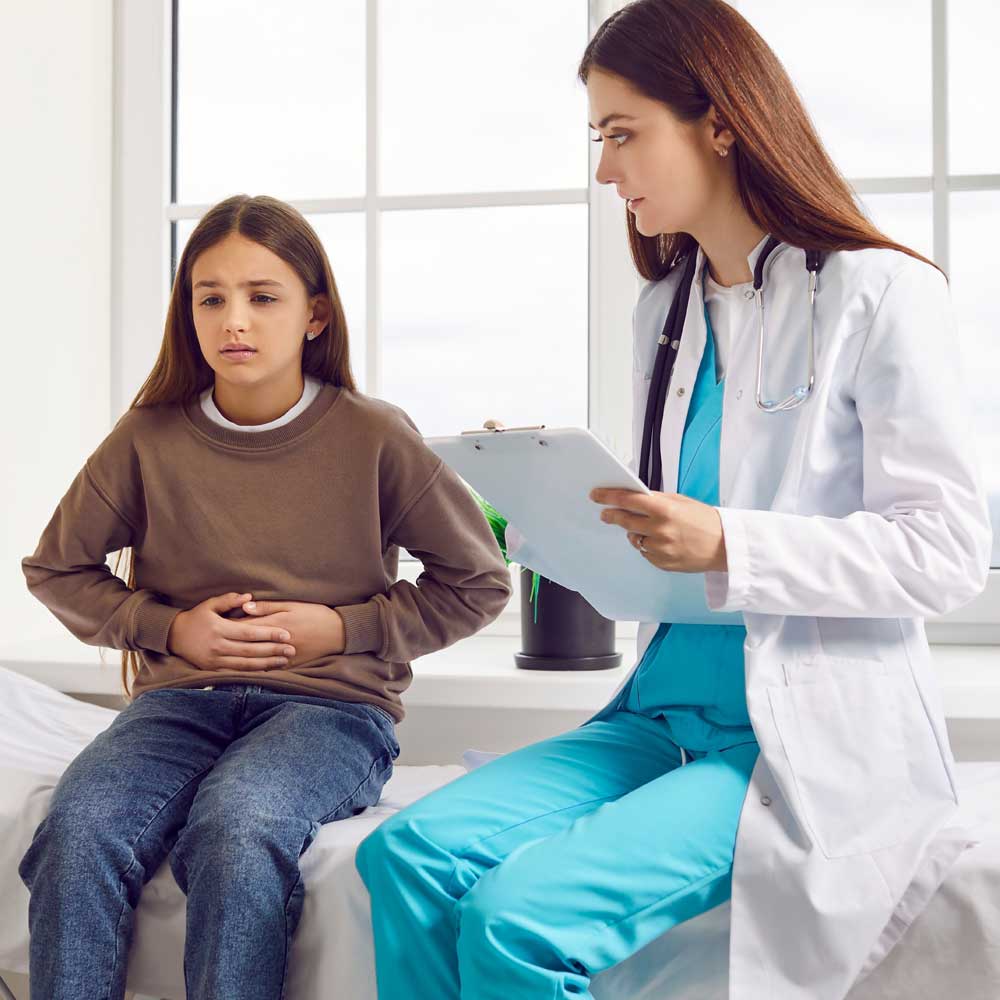
Fast Relief Starts Here
Stomach Pain Evaluation & Treatment in Northeast Philadelphia
Whether it’s a sudden cramp, a dull ache, or sharp abdominal pain, stomach issues can disrupt your entire day. At IPMC Health Clinic in Northeast Philadelphia, we offer prompt, compassionate care for stomach pain—helping you feel better, fast.
Our experienced medical team will evaluate your symptoms, determine the likely cause, and guide you toward the right treatment—so you can get back to feeling your best.
Know Symptoms
When to Seek Care for Stomach Pain
While mild stomach aches often resolve on their own, more serious or persistent pain can be a sign of a larger issue. Visit IPMC Health Clinic if you experience:
- Ongoing or severe abdominal pain
- Nausea or vomiting
- Bloating or cramping
- Pain accompanied by fever or chills
- Blood in stool or vomit
- Pain after eating certain foods
- Unexplained weight loss
Common causes of stomach pain include:
- Stomach viruses or food poisoning
- Indigestion or acid reflux
- Constipation or gas
- Gastritis or ulcers
- Gallbladder or appendix issues
- Food allergies or intolerances

Care Process
How We Treat Stomach Pain
When you come to IPMC Health Clinic with abdominal pain, we’ll:
- Ask detailed questions about your symptoms and medical history
- Perform a physical exam
- Order lab work or imaging if needed
- Provide medications to ease pain, nausea, or inflammation
- Recommend dietary changes or follow-up care when necessary
- Refer to a specialist if symptoms suggest a more serious condition
Whether the issue is mild or more complex, we’re here to help you feel better quickly and safely.
Trusted Specialists
Why Choose IPMC Health Clinic?
At IPMC, you’ll find expert care, short wait times, and a supportive environment that puts your health first.
Same-Day Appointments – Relief without delay
Working Hours – Monday–Thursday, 8 AM – 2 PM
Convenient Location – Right here in Northeast Philadelphia
Friendly, Bilingual Team – Focused on your comfort and care
Trusted by Local Families – Personalized treatment close to home
Simply fill out the form, and our team will contact you to confirm your appointment.
Frequently Asked Questions
Stomach Pain Treatment
What causes stomach pain?
Stomach pain can be caused by many things—indigestion, gas, food poisoning, infections, constipation, or more serious conditions like appendicitis or ulcers.
When should I see a doctor for stomach pain?
If the pain is severe, persistent, or accompanied by symptoms like fever, vomiting, diarrhea, or blood in your stool, you should seek medical attention.
Is stomach pain always a sign of something serious?
Not always. Minor stomach pain can be related to diet or temporary digestive upset. However, recurring or intense pain should be evaluated.
Can stress cause stomach pain?
Yes. Stress and anxiety can contribute to gastrointestinal issues like cramps, bloating, or irritable bowel syndrome (IBS).
How do you diagnose the cause of stomach pain?
Our providers will review your symptoms, conduct a physical exam, and may order lab work or imaging if needed to determine the cause.
What treatments are available for stomach pain?
Treatment depends on the cause. It may include hydration, antacids, antibiotics, dietary advice, or prescription medication.
Is stomach pain common in children?
Yes. Kids often experience stomach aches due to viruses, gas, or constipation. If your child has ongoing or severe symptoms, bring them in for evaluation.
Can food intolerances cause stomach pain?
Absolutely. Intolerances to foods like dairy or gluten can trigger stomach pain, bloating, or cramping in some individuals.
What should I avoid eating if I have stomach pain?
Avoid spicy, greasy, or heavy foods until you’re feeling better. Stick with bland items like toast, rice, or bananas.
Can dehydration cause stomach pain?
Yes, dehydration can lead to cramping and digestive discomfort. Drinking enough water is important, especially during illness.
